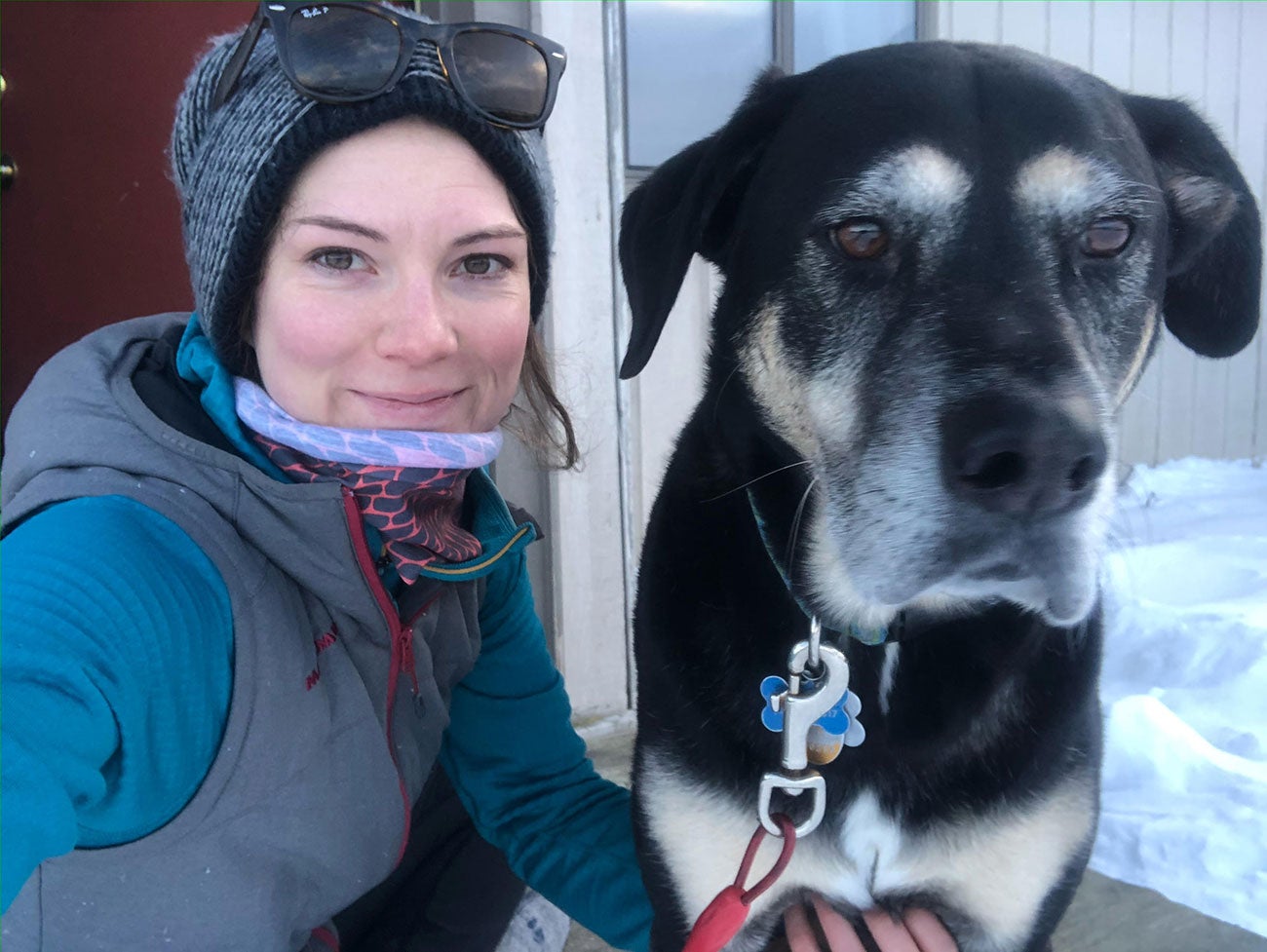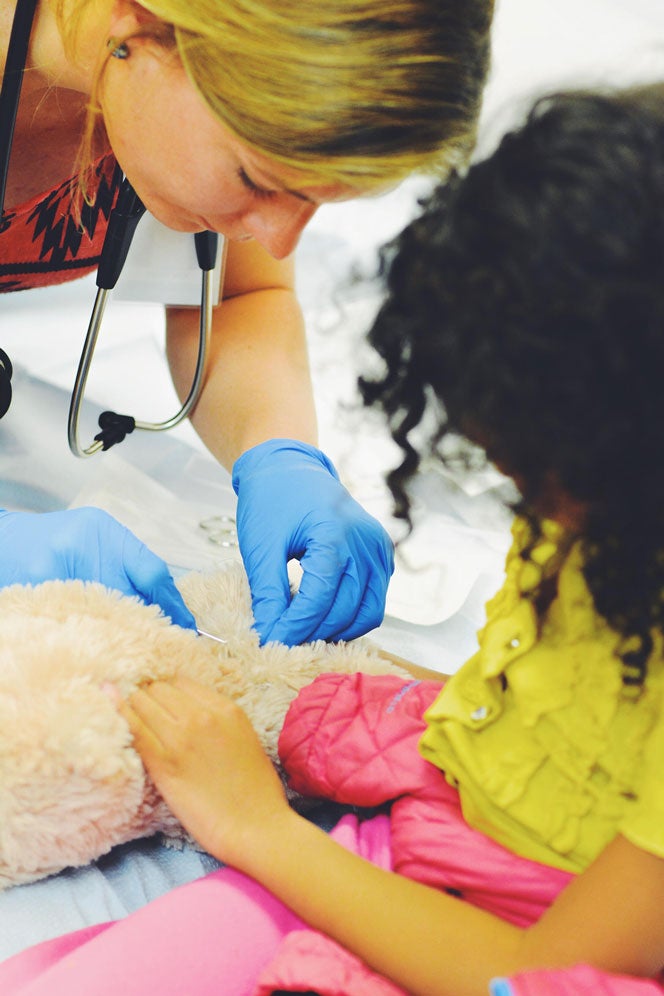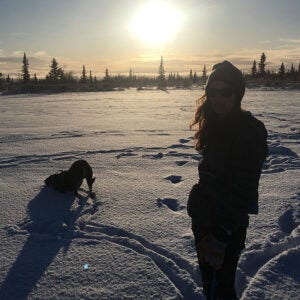
Kim Dahm’s a Bronco whose degrees and career have taken her in extreme directions, quite literally and quite by choice.
Now working as a physician assistant in an outpatient weight management clinic in Anchorage, she believes she’s come full circle in some respects — and loves how it’s shaped up.
Boise State was her third start to an undergraduate degree, one she started at the University of Hawaii and continued at the University of Victoria in British Columbia. It was while working on a charter yacht in Alaska during a summer job that Boise State, and very specifically the Department of Kinesiology, became the path forward.
“It had all of the things I was looking for in a program,” she said, adding that being able to choose an emphasis created opportunities for graduate-level study and career options that have since served her well. “My degree emphasis allowed me to study exercise science while also completing the traditional hard sciences that were necessary to apply to graduate school.
“I really loved my time at Boise State. It was totally the right thing for me, and my degree was the perfect choice.”
She received her Boise State Bachelor of Science in Exercise Science with an emphasis in exercise physiology in 2009 and went on to earn her Master of Physician Assistant Studies degree from Idaho State University in Pocatello in 2014.
Dahm had long been drawn to Alaska, working during summers throughout college on small adventure boats, guiding passengers by kayak and on foot in wilderness areas. She returned to the state following graduation and worked in some of the United States’ most remote settings, communities sometimes of 60 or even 18 residents, often as the sole clinician, in tribal health care.

“The work was exciting, and it was what I trained for,” she said. “The challenge is, you’re typically under-resourced, providing a broad spectrum of care, and then of course there is the distance to definitive care. It’s not always feasible.”
In environments such as the Aleutian Islands, for example, weather is volatile, transportation is sporadic and hazardous and those few medical professionals who are available are on call, 24/7, routinely alone and making decisions without the benefit of colleagues.
“These jobs are very difficult to staff and you sacrifice a lot,” she said. “You give up quite a bit of your personal life.
“It’s just a very different sort of setting than most health care professionals experience.”
After taking some time off toward the end of the pandemic, she’s been in her current clinic environment for about a year and says, “I love it. It’s really fun to see people get better.
“I use my education in nutrition and exercise science from Boise State as much as my medical training to care for patients,” Dahm said.
Here, she’s put together all the skills and education from her undergraduate days, her advanced degree and her knowledge of the people and ways of Alaska to equip and empower people in ways that she has found progressive layers of pharmaceuticals do not. She’s bought a house. She’s there to stay.

“Alaska is home. It’s called to me since the day I arrived,” Dahm said, “My actual job and what I do have been very gratifying. It is what I trained to do and what I thought it would be.
Her experience in Boise State’s kinesiology program, combined with her experiences and advanced degree, have combined to shape an interesting life and fulfilling work, and given her an outlook that incoming students might be well-served by.
“Study something that interests you, but doesn’t limit you,” Dahm said. And of the Boise State program, “Having those options within the department allows students to think outside of the box when it comes to opportunities following graduation, career or otherwise.”